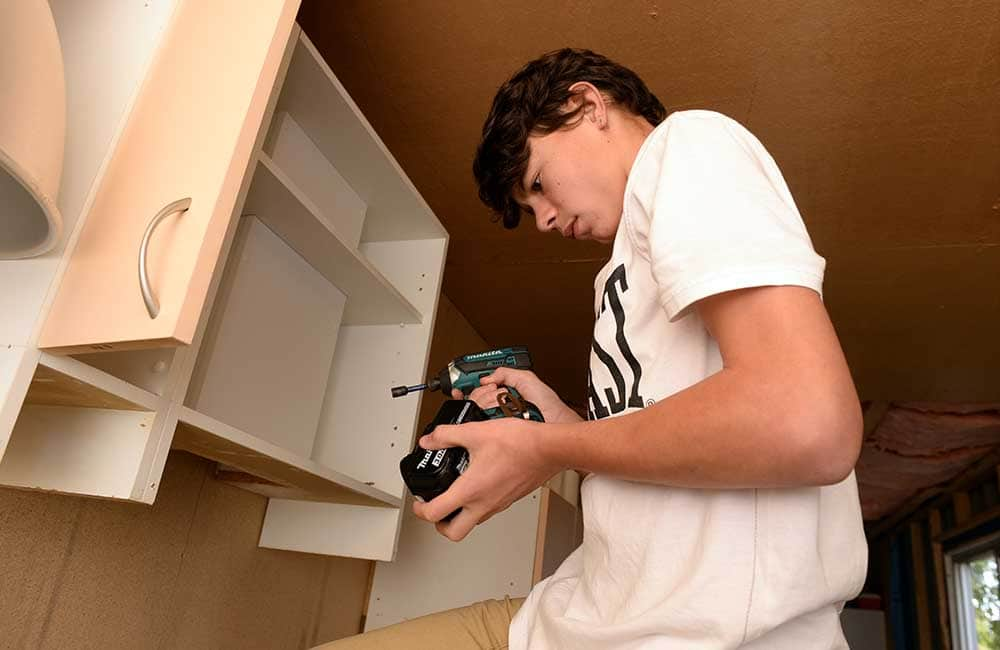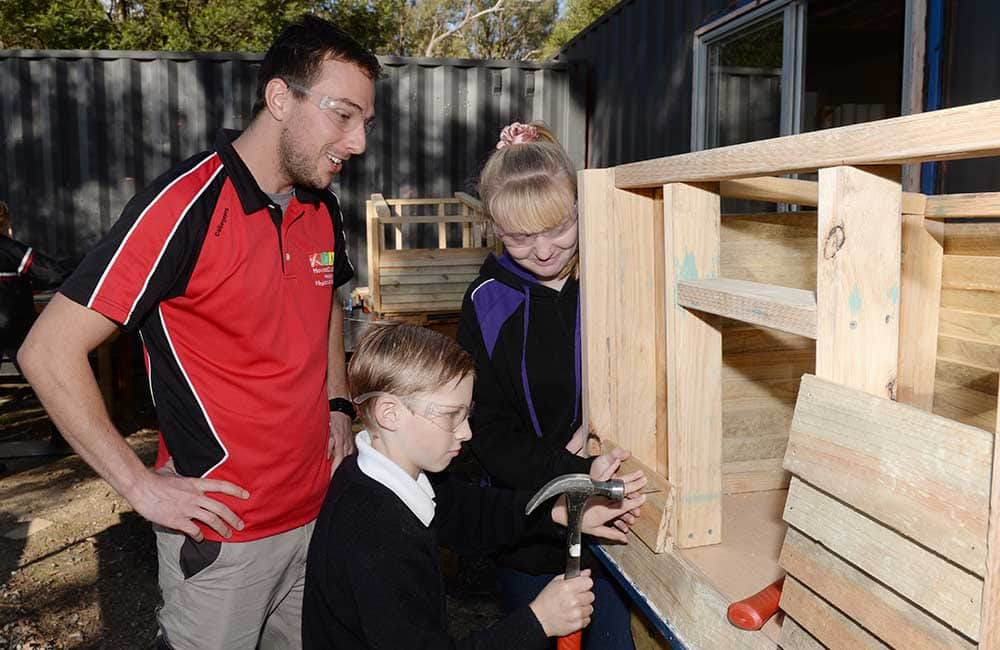The program
The Hands on Learning program started in Frankston in 1999 and now runs in more than 100 schools in Australia across year levels 5 to 10.
Students work together on practical projects that foster teamwork, communication and problem-solving skills. The model creates a place to belong on school grounds but also outside the classroom where students build relationships, learn through real life projects, and develop strategies to shift attitudes and behaviours that can be barriers to learning in the classroom.
Hands on Learning Regional Victoria School Support Manager Steve Schneider said the ultimate goal was to re-engage young people with education before they drop out, but also equip them with the skills to succeed at school.
"For so many kids, a traditional classroom setting isn't working for them," he said.
"For a lot of the children involved, they don't have the easiest life and this is somewhere they can spend the majority of the day doing something they are really interested in and passionate about with someone who is interested in them.
"All you have to do is walk in and see how much fun they are having. It is great to see kids engaged and happy in what they do."
Respect and responsibility
When The Courier visited Mount Clear College's Hands on Learning program, students were working in small teams building dog kennels. Some students hammered nails into wood, while others sanded rough edges, measured wood and cut it to size.
While most of the group work outside on the dog kennels, year nine student Kaiden worked alone fixing cabinets. It is Kaiden's third year in the program. He has developed a maturity and independence that has led to him initiating work on projects that will improve the school's Hands on Learning space.
Kaiden said he was struggling in class and to make friends when he first entered the program. Now he has ambitions to finish year 12, and to work for Hands on Learning when he graduates.
"It was tough coming into year seven. I didn't know my way around. I had gotten used to being around certain people in primary school and coming to a new school I couldn't focus because I didn't know anyone," he said. "I came into Hands on Learning and got to the point where I could make friends and focus in class.
Kaiden said Hands on Learning had taught him teamwork, respect and responsibility.
"The program has definitely helped and it has shown me respect in class. It is one reason why I turn up to school most days because I struggle a lot in class, but I get this break and time out of class," he said.
"I am focused in class now. That is what will help me a lot more at school. I am not sure what I want to do for the rest of school yet but I know I want to stay until the end of year 12.”
 Year 9 student Kaiden is taking on more responsibility since joining the program. Picture: Kate Healy
Year 9 student Kaiden is taking on more responsibility since joining the program. Picture: Kate Healy
A broader potential
Steve Schneider said he believed Hands on Learning had the potential to change engagement rates in education by helping students with different talents flourish.
"Primary schools are coming to us asking about Hands On Learning. To me that is alarming, that you can be in grade three or four and people are recognising you are tapping out of education," he said.
"Once you get to year 10, opportunities and programs for alternative learning open up. But there are kids who are tapping out early in grade four and five, they go into secondary school where transition is a tipping point for a lot of kids, and your habit might be to bail, to be mute or to not turn up when it gets hard. So many kids from year seven, eight and nine muddle through until they get to year 10.
 Year 8 students get hands on, nailing together a dog kennel in their Hands On Learning program. Photo: Kate Healy
Year 8 students get hands on, nailing together a dog kennel in their Hands On Learning program. Photo: Kate Healy
"What I am hearing from most people when I talk to them at schools is even when these students get to year 10 or year 11, they have learnt so little or have so little confidence and capacity that when they get to these opportunities they are not ready for them anyway, they don't succeed and then feel worse about themselves. Then what path do we put them on?
"Our aim with Hands on Learning is to open up their world to the idea that you can be successful in school. If you show students how to be organised, work with other people, have a good work ethic and focus on a task, when you get alternative opportunities in year 10 they will be ready for them and be successful."
Header photo: Adam Trafford
Article excerpt from Ballarat Courier - June 2, 2019